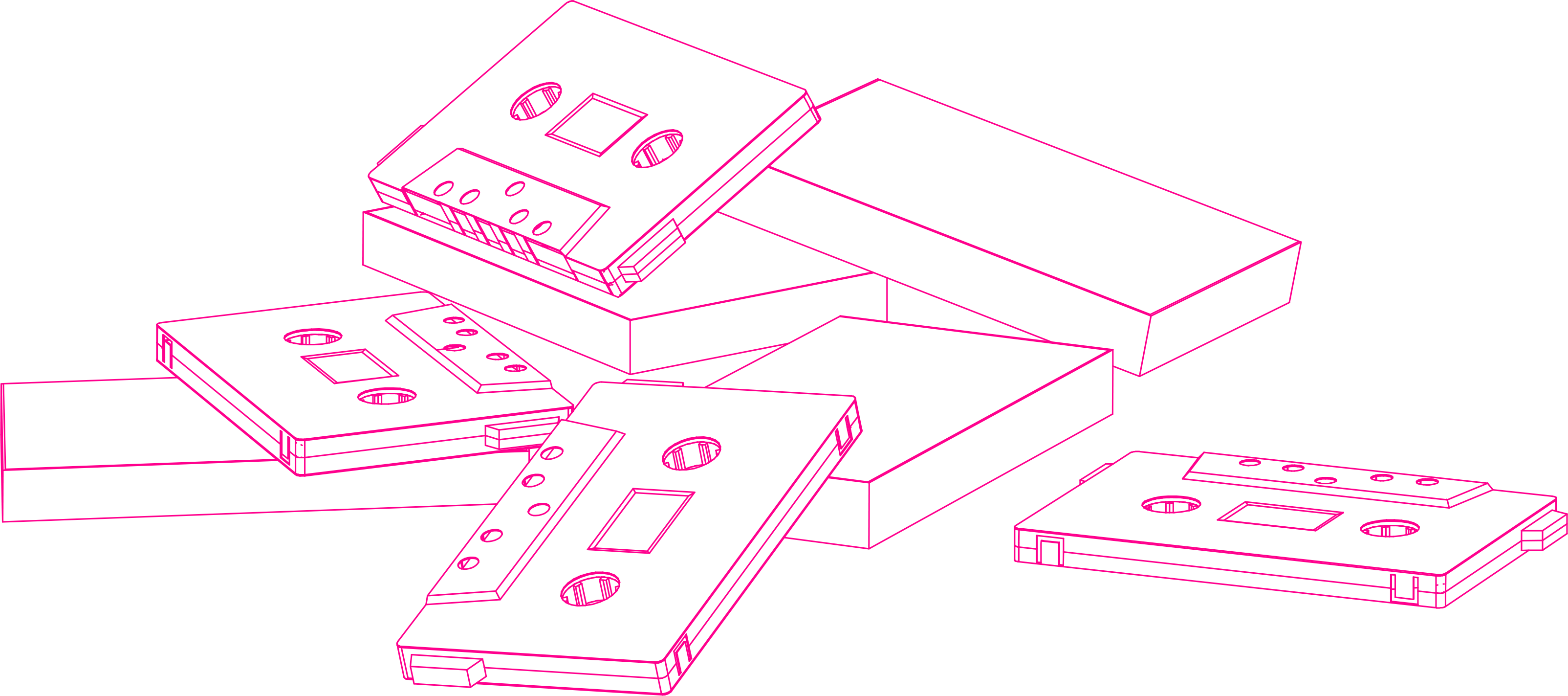
Yamen Mekdad
Syrian Cassette Archives:
The coming together of a community archive
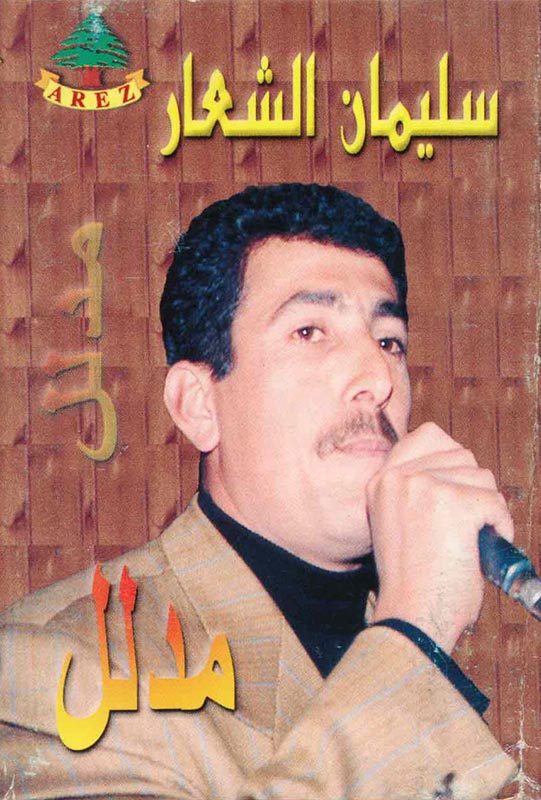




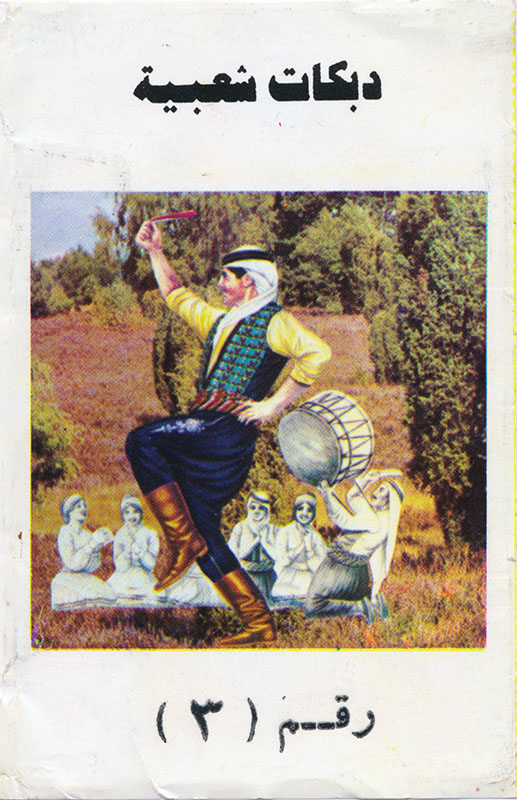
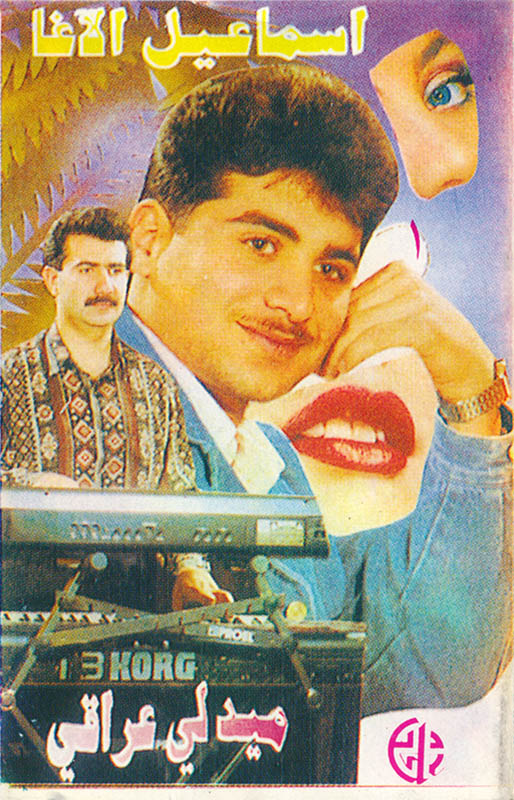



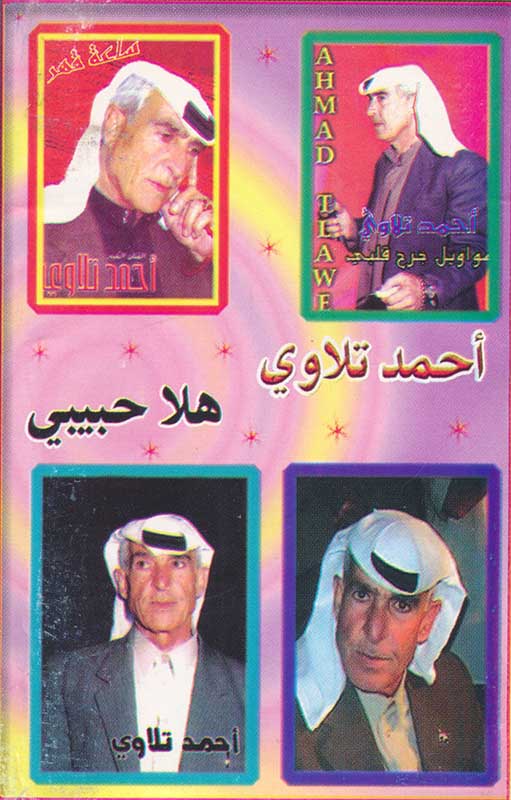


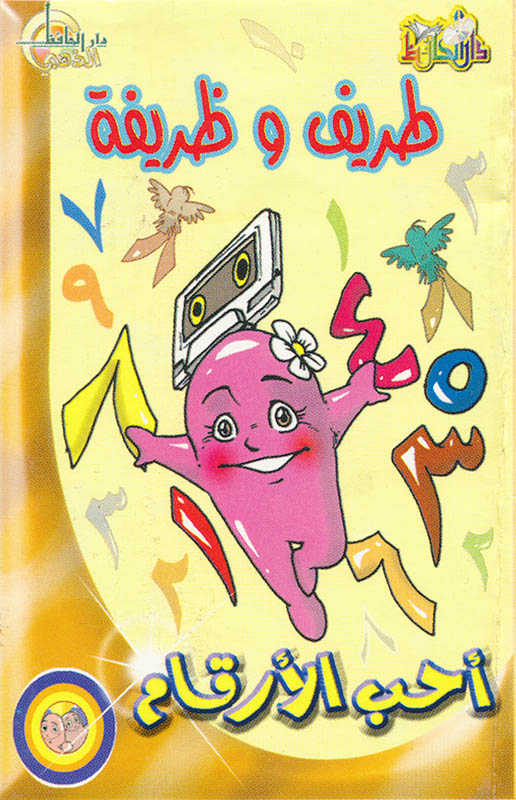




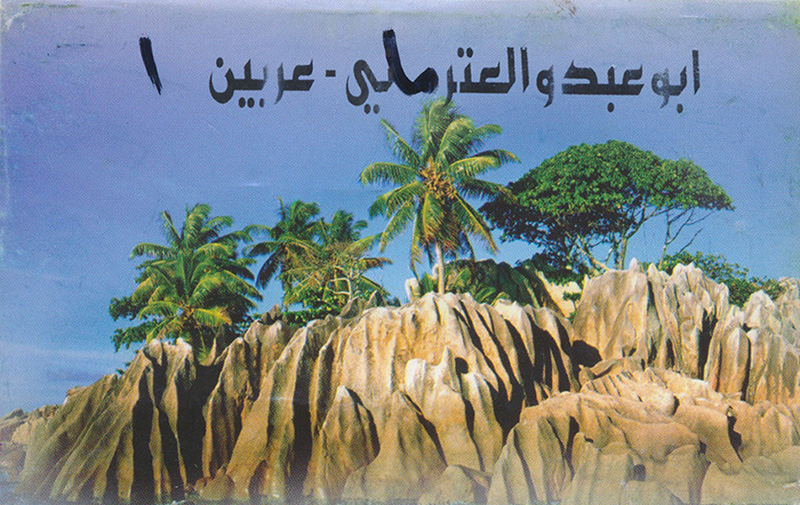
Below a link to the archive,
I invite you to explore the sounds, visuals and features before reading this
and after.
www.syriancassettearchives.org
www.syriancassettearchives.org
The birth of the Syrian Cassette Archives is a story
about music, people, serendipitous encounters and hope. At least, that is my telling
of the story. I recall first meeting Mark Gergis in 2018. I had gotten in touch
with him a month earlier to invite him as a guest speaker on Dandana, a podcast
I was co-hosting with Emily Sarsam and Christina Hazboun at the time, that
explored music from across the SWANA region. When we spoke, Mark told me that
he was moving to London in a couple weeks’ time, and so we agreed that we would
meet up in person.
Our interest in music left us speaking for hours that day. We also spent a long time discussing music in the context of Syria, as Mark told me all about his trips to Syria in the late 1990’s and early 2000’s where he acquired a considerable personal collection of Syrian cassettes from his trips across the country, a collection that spanned across regional folk, children’s songs and shaabi music. In light of the devastating destruction that was sweeping across the country, Mark was keen to turn his personal cassette collection into an open access archive. It was then that we decided to start working together to better understand what the best way was to share his collection more widely.
The Syrian Cassette Archives (SCA) was officially launched as an online public archive in 2021. At the heart of the SCA’s activities is the aspiration to preserve, document, digitise, share as well as research and engage with Syrian music, specifically looking at the cassette era in Syria, which has had one of the longest standing cassette eras, lasting from the end of the 1960s until 2010. During this period, the introduction of the cassette tape brought on the democratisation of audio recording, which had previously been restricted to those who could either afford to record in a studio or to those musicians whose music was deemed ‘good’ or ‘acceptable’ enough to be recorded. At once, the cassette meant that these barriers to entry and dissemination could be sidestepped, which led to a rapid growth in the recording and dissemination of music across the country.
Our interest in music left us speaking for hours that day. We also spent a long time discussing music in the context of Syria, as Mark told me all about his trips to Syria in the late 1990’s and early 2000’s where he acquired a considerable personal collection of Syrian cassettes from his trips across the country, a collection that spanned across regional folk, children’s songs and shaabi music. In light of the devastating destruction that was sweeping across the country, Mark was keen to turn his personal cassette collection into an open access archive. It was then that we decided to start working together to better understand what the best way was to share his collection more widely.
The Syrian Cassette Archives (SCA) was officially launched as an online public archive in 2021. At the heart of the SCA’s activities is the aspiration to preserve, document, digitise, share as well as research and engage with Syrian music, specifically looking at the cassette era in Syria, which has had one of the longest standing cassette eras, lasting from the end of the 1960s until 2010. During this period, the introduction of the cassette tape brought on the democratisation of audio recording, which had previously been restricted to those who could either afford to record in a studio or to those musicians whose music was deemed ‘good’ or ‘acceptable’ enough to be recorded. At once, the cassette meant that these barriers to entry and dissemination could be sidestepped, which led to a rapid growth in the recording and dissemination of music across the country.
[i] The Qudud Al-Halabiya (Arabic: قدود
حلبية,
romanized: Qudūd Ḥalabīya, literally "musical measures of Aleppo")
are traditional Syrian songs combining lyrics in Classical Arabic based on the poetry
of Al-Andalus, particularly that in muwashshah form, with old religious
melodies collected mainly by Aleppine musicians. Their themes are most often
love, longing and spirituality.
This has meant that wide-ranging and diverse musical styles
reflecting the richness of Syria's musical traditions were being recorded
during this period. The recordings ranged from regional styles such as dabke,
‘ataba and mijana from the coastal regions, dabke and jofiatfrom Southern Syria, as well as music traditions from the ethnically and
religiously diverse communities from across Northeast Syria, which included
sizeable Kurdish, Assyrian, Armenian and Yazidi communities, all the way to the
long-standing Qudud and Mwashaht [i] traditions
of Aleppo. Although still growing, SCA’s cassette tape collection today,
currently standing at a humble 1000+ tapes, is a testament to the diverse
sounds of that time, but also importantly to the rich histories and cultures of
the people and civilizations that lived there over centuries. I recently
managed to acquire a further 1000 cassettes which are in Damascus and will be
digitized in the next stage of the project.
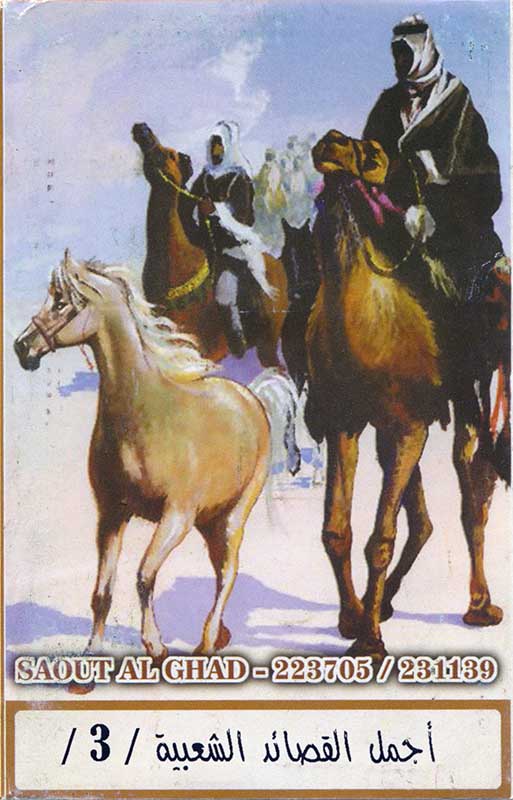
Folk
music from As Suwayda
Various Artists
Best Folk Poems - Vol 3
REF NO: 0160
GENRES: Hourani dabke shaabi
LABEL
Sawt Al Ghad
LOCATION ISSUED
Swaida, Syria
ARTIST ORIGIN
Swaida, Syria
Various Artists
Best Folk Poems - Vol 3
REF NO: 0160
GENRES: Hourani dabke shaabi
LABEL
Sawt Al Ghad
LOCATION ISSUED
Swaida, Syria
ARTIST ORIGIN
Swaida, Syria
As an online public archive, we have worked on
digitising hundreds of cassette tapes to make them available online along with
digital scans of the accompanying cassette covers. Upon visiting the SCA’s
website, you see rows and rows of colourful cassette tape covers. We designed
the interface this way with the cassette shop in mind. All the tapes featured
on our website can be listened to, with the option to choose the A side or B
side to listen to first, mimicking the experience of using a tape-player. The tape covers also tell their own story.
Looking at them lined up side by side, they bring to life a very particular
aesthetic that emerged during the cassette era: bright collages, quirky
calligraphic designs and offset printing, all made using basic graphic design
softwares. Every time I visit the website, it leaves me feeling nostalgic,
remembering the days when I used to find myself sifting through heaps and heaps
of tapes in cassette shops. Unfortunately, many of these shops and kiosks no
longer exist today.
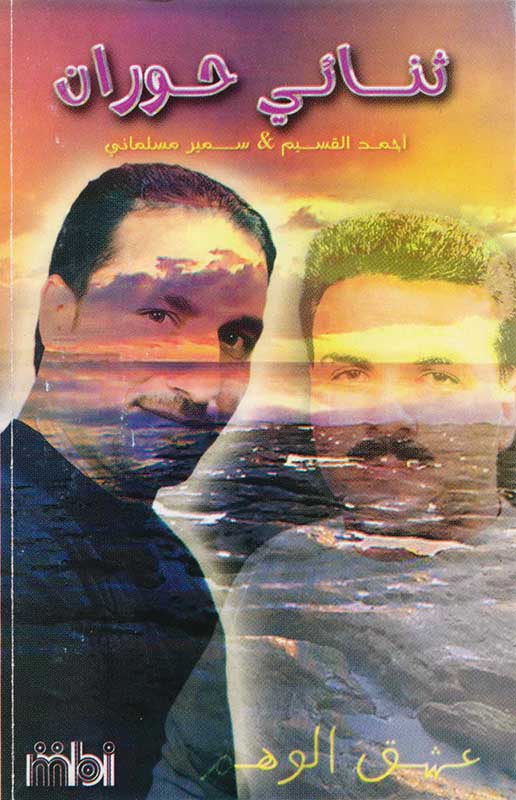
Folk
music from Daraa
Thunai Horan (Houran Duo), Ahmed Al Koseem & Samir Muselmani
Ishq el Wahm (Love of the Illusion)
REF NO: 0024
GENRES: pop dabke Hourani
LABEL
FUTURE
MBI Music Box International
LOCATION ISSUED
Damascus, Syria
ARTIST ORIGIN
Daraa, Syria
Thunai Horan (Houran Duo), Ahmed Al Koseem & Samir Muselmani
Ishq el Wahm (Love of the Illusion)
REF NO: 0024
GENRES: pop dabke Hourani
LABEL
FUTURE
MBI Music Box International
LOCATION ISSUED
Damascus, Syria
ARTIST ORIGIN
Daraa, Syria

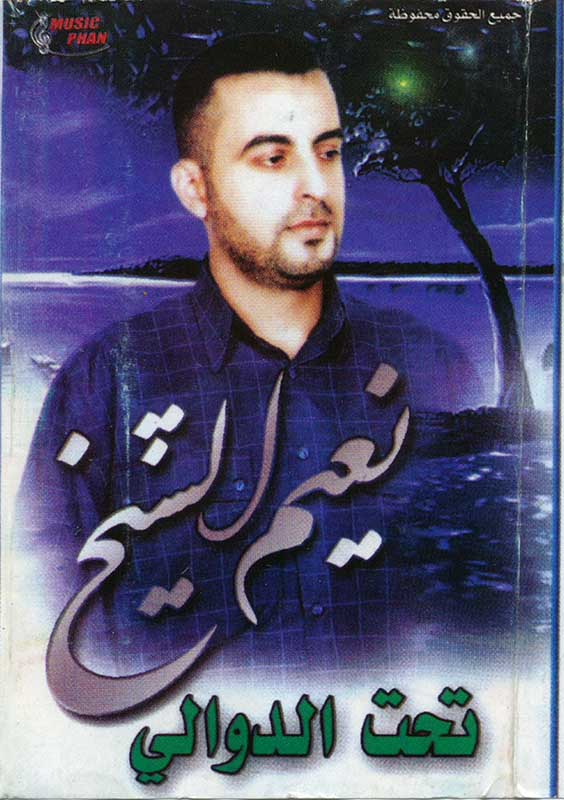
Folk
from the Syrian coast
Naim Al Sheikh
Tahet Al Dawali (Beneath the Grapevine)
REF NO: 0124
DATE: 2006
GENRES: attaba dabke
LABEL
Music Phan
ARTIST ORIGIN
Homs, Syria
CREDITS
Keyboards: Abdul Raheem Al Saleh
Naim Al Sheikh
Tahet Al Dawali (Beneath the Grapevine)
REF NO: 0124
DATE: 2006
GENRES: attaba dabke
LABEL
Music Phan
ARTIST ORIGIN
Homs, Syria
CREDITS
Keyboards: Abdul Raheem Al Saleh
Importantly,
the archive itself has allowed us to move beyond the materiality of the tapes,
to explore more closely the conditions of music production, not only in Syria,
but across the region. The website is not only home to the digitised tapes and
their covers but is also increasingly becoming a platform that openly invites
researchers and writers as well as sound enthusiasts to approach the archive as
a platform from which new questions and understandings can begin to arise.
Therefore, the website sets out to house and piece
together a growing bilingual body of knowledge, both in Arabic and in English,
around the cassette era and the period’s social, economic, and political
specificities; this includes commissioned essays, research articles, interviews,
and recordings. The assemblage of written and recorded materials on the website
are attempts at beginning to trace the contours of what once was a vibrant and
diverse ecology of singers, musicians, producers, cassette shop owners, music
labels, designers and more, that made the recording, production, and
dissemination of music during that period what it was.

Collection of mawal performances
Various Artists
Mawalat Kurdiya (Kurdish Mawal) '96
REF NO: 0079
DATE: 1996
GENRES: Kurdish folk shaabi mawal
LABEL
Shahba
LOCATION ISSUED
Aleppo, Syria
ARTIST ORIGIN
Ras Al Ain, Qamishli, Hassake, northeastern Syria, Turkey, Iraq
Various Artists
Mawalat Kurdiya (Kurdish Mawal) '96
REF NO: 0079
DATE: 1996
GENRES: Kurdish folk shaabi mawal
LABEL
Shahba
LOCATION ISSUED
Aleppo, Syria
ARTIST ORIGIN
Ras Al Ain, Qamishli, Hassake, northeastern Syria, Turkey, Iraq
The collection is also an archive of the social,
cultural, technological, and political history of that period. Many of the
tapes offer a glimpse into and allow for a closer reading of the
transformations during that period that can still be felt today. With the
democratisation brought on by cassette tapes for example, not only was it
musicians that seized this opportunity, but also the state that recognised this
as a useful tool to further its ideological and state-building priorities. This
is evident in the large number of political tapes on which political
statements, speeches and nationalist songs and chants were recorded. On the
other hand, oppressive state policies towards Kurdish communities meant that
Kurdish music was rarely made available on any public platforms or broadcasting
outlets. Yet, despite this, the collection features a large quantity of Kurdish
tapes, telling a very different story: one of resistance and cultural defiance.
The cassette tapes also point to regional political upheavals. This is evident,
for example, in the number of Iraqi cassette tapes that we have gathered as
part of our collection. A significant number of these cassette tapes entered
the distribution circuit during the American invasion of Iraq in 2003, as
thousands of Iraqis migrated to Syria during that period.

Folk from Deir Ez Zur
Imad Jarad
Lasheel Hammi (Ease My Burden)
REF NO: 0061
DATE: 1995
GENRES: dabke mawal choubi shaabi
LABEL
Sawt Al Hafez
LOCATION ISSUED
Aleppo, Syria
ARTIST ORIGIN
Deir Ez Zur, Syria
CREDITS
Keyboards: Freej Amsyan
Sound engineer: Salman Al Dakhee
Imad Jarad
Lasheel Hammi (Ease My Burden)
REF NO: 0061
DATE: 1995
GENRES: dabke mawal choubi shaabi
LABEL
Sawt Al Hafez
LOCATION ISSUED
Aleppo, Syria
ARTIST ORIGIN
Deir Ez Zur, Syria
CREDITS
Keyboards: Freej Amsyan
Sound engineer: Salman Al Dakhee
A sizable number of tapes in the collection capture
the ephemeral moments of communities coming together for weddings and family
celebrations, granting us access into intimate and domestic spaces. Community
gatherings such as these were normally centred around music, dance and food
that would go on for days. With the onset of the cassette tape, musicians
started recording their performances at these events, and would then go on to
distribute a limited number of these tapes, which would act as personal business
cards, supporting musicians to get more bookings at weddings across their
regions.
Another transformation that has caught my attention and interest has been the impact of the keyboard on traditional musical styles. Since the introduction and eventual adoption of the keyboard by folk musicians, it completely transformed the way in which they would perform, as one musician alone on the org keyboard could now play five instruments simultaneously for hours on end. I would also argue, counter to the ways in which it was perceived as a threat to ‘authentic’ traditional sounds when it was first introduced, it has played a crucial role in ensuring the continuity as well as transmission of these musical styles into the present, particularly when taking into account the economic and demographic shifts that have taken place over the past decades.
As a community archive, we actively invite members of the public to engage with the archive and to craft their own personal and creative responses to the collection. This then places the collection in dialogue with both the past and the present, acting as time capsules with the capacity to unlock new meanings and recover silenced histories. Such practices of reading close to, alongside, with, and between the collection demonstrate the many ways in which the meanings and memories associated with artefacts such as these are neither stable nor fixed but are subject to processes of decontextualization and recontextualization. The potential therein lies in their ability to challenge the fixedness of knowledge and offer alternative insights, countering prevalent and dominant ideologies and frameworks, whether colonial or state-led.
In the absence of state archives and in the shadows of nationalist ideologies, the SCA as an online public archive aspires towards positing the archive as sites of plurality and diversity, where remembering, reclamation and re-enactment can take place once again. The SCA hopes to offer a platform where personal, civic, and communal memories can be stored, ordered, and preserved; a site that can work towards maintaining strong community ties that ensure their continuity into the future.
Another transformation that has caught my attention and interest has been the impact of the keyboard on traditional musical styles. Since the introduction and eventual adoption of the keyboard by folk musicians, it completely transformed the way in which they would perform, as one musician alone on the org keyboard could now play five instruments simultaneously for hours on end. I would also argue, counter to the ways in which it was perceived as a threat to ‘authentic’ traditional sounds when it was first introduced, it has played a crucial role in ensuring the continuity as well as transmission of these musical styles into the present, particularly when taking into account the economic and demographic shifts that have taken place over the past decades.
As a community archive, we actively invite members of the public to engage with the archive and to craft their own personal and creative responses to the collection. This then places the collection in dialogue with both the past and the present, acting as time capsules with the capacity to unlock new meanings and recover silenced histories. Such practices of reading close to, alongside, with, and between the collection demonstrate the many ways in which the meanings and memories associated with artefacts such as these are neither stable nor fixed but are subject to processes of decontextualization and recontextualization. The potential therein lies in their ability to challenge the fixedness of knowledge and offer alternative insights, countering prevalent and dominant ideologies and frameworks, whether colonial or state-led.
In the absence of state archives and in the shadows of nationalist ideologies, the SCA as an online public archive aspires towards positing the archive as sites of plurality and diversity, where remembering, reclamation and re-enactment can take place once again. The SCA hopes to offer a platform where personal, civic, and communal memories can be stored, ordered, and preserved; a site that can work towards maintaining strong community ties that ensure their continuity into the future.
Yamen Mekdad is a music researcher, collector, DJ and radio host based in London. His interests in field recording, archiving, radio and grassroots organising have led him to found Sawt of the Earth and Makkam, two London-based collectives. He is a frequent contributor to a number of radio stations, including Root Radio and Balamii Radio, and was a producer of DanDana podcasts on SOAS Radio. Yamen is currently co-producer/curator of the Syrian Cassette Archives, a web based platform that preserves the Syrian cassette era as well as curating and producing SACF’s (Syrian Arts and Culture Festival) music programme. Yamen has performed and collaborated with various artists/art institutions both in the UK and internationally.
︎ ︎ ︎
